#Mr. Morale & the Big Steppers
Text
Kendrick Lamar mit Videosingle “Count Me Out”
Kendrick Lamar mit Videosingle “Count Me Out”
Kendrick Lamar hat zur Single “Count Me Out” kürzlich ein Musikvideo veröffentlicht. In dem neuen Video spielt die Schauspielerin Helen Mirren in einer Hauptrolle Lamars Therapeutin. Der Track ist Teil des neuen Studioalbums “Mr. Morale & The Big Steppers”, das im März 2022 erschien und das von dem Rapper Ende Oktober im Rahmen seiner Tour präsentiert wurde. Seht nun das Video:
youtube
View On WordPress
3 notes
·
View notes
Text
Kendrick Lamar Releases 'Rich Spirit' Video
Kendrick Lamar Releases ‘Rich Spirit’ Video
Kendrick Lamar received a GRAMMY nomination for his ‘Mr. Morale & The Big Steppers’ album released back in May. The release follows his 2017 critically acclaimed DAMN. release. The new album titled Mr. Morale & The Big Steppers includes two 9 track parts totaling 18 songs. The project featured Blxst, Amanda Reifer, Sampha, Summer Walker, Ghostface Killah, Kodak Black, Baby Keem, Tana Leone and…
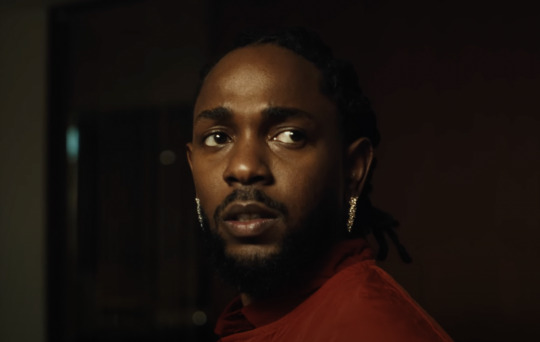
View On WordPress
2 notes
·
View notes
Text
2/6
youtube
View On WordPress
#aGIANTmonster#Beth Gibbons#Kendrick Lamar#Mother I Sober#Mr. Morale & The Big Steppers#Official Audio#Portishead#Youtube
0 notes
Text
3-7-2023
Daily journal entry for 3-7-2023
Events:
Morning:
Got up and went to work. Finally a more consistent day in terms of temperature, low 40’s high 50’s.
Broke one of the arms on my sunglasses while cleaning them. Just snapped it in half, I guess I was pushing too hard trying to wipe the sweat off the lens. Guess I gotta squint for a while until I can get another pair. I’ll probably still stick with Goodr, their frames are really…
View On WordPress
#album#books#burger#class#cooking#core#Crime and Punishment#daily#food#interview#journal#Kendrick Lamar#lifting#Mr. Morale & The Big Steppers#music#prep#reading#running#school#weights#work#workout
1 note
·
View note
Text
Kendrick Lamar – Mr. Morale & The Big Steppers [Full Album]
Kendrick Lamar – Mr. Morale & The Big Steppers [Full Album]
Kendrick Lamar Mr. Morale & The Big Steppers Zip Download
Kendrick Lamar returns to present yet another new music album titled “Mr. Morale & The Big Steppers”
Stream and Download Kendrick Lamar – Mr. Morale & The Big Steppers zippyshare Album in Rar, torrent, Leak, fakaza M4a.
Kendrick Lamar – Mr. Morale & The Big Steppers Lyrics and Tracklist
1. Kendrick Lamar – United In Grief
2. Kendrick Lamar…
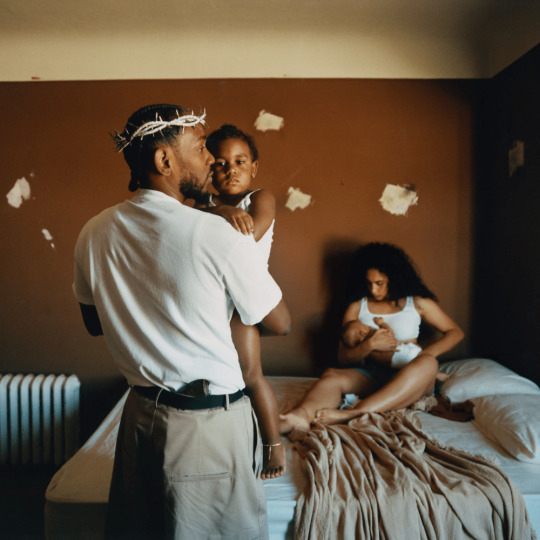
View On WordPress
0 notes
Photo
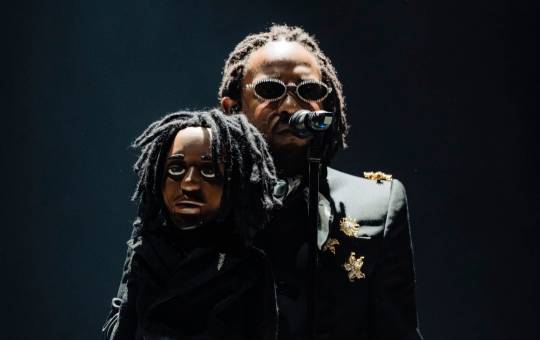
Una data del tour di Kendrick Lamar in diretta esclusiva su Amazon Music
https://www.dlso.it/site/2022/10/18/kendrick-lamar-diretta-amazon-music/
0 notes
Text
Track of The Day (04) : Rich
Track of The Day (04) : Rich
Although I can’t seem to listen to any new music, I am able to come back to this album Mr. Morale & The Big Steppers by Kendrick Lamar over and over again. I have tried to review the whole album but even before I let myself think about it, I have the daunting feeling that I can never even start to bring out the exquisiteness of the poetry that is wrapped in the most original composition ( that I…

View On WordPress
0 notes
Text
The grammys don't got it right
8 notes
·
View notes
Text
"Auntie Diaries", Kendrick Lamar (2022)
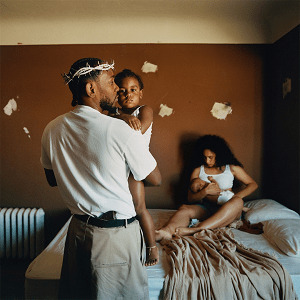
LGBTQIA+
The Complicated Conundrum of Kendrick Lamar’s “Auntie Diaries”
*Trigger Warning* the following song contains the use of slurs and perceptions of deadnaming and misgendering which some may find triggering.
youtube
“This is how we conceptualize people,” intones the voice of German theologist Eckhart Tolle during a notable tonal transition on Kendrick Lamar’s Mr. Morale & The Big Steppers.
Deep within the second disc, listeners have delved into Lamar’s innermost thoughts on a concept album that plays like a journal read from shaking hands to a therapist.
From progressively amped-up recordings confronting the celebrated rappers status as the often hailed “Voice of a Generation”, the Pulitzer Prize winner pivots to the soft-spoken and introverted side of himself that often catches reporters off guard for the controversial and wholly unexpected song “Auntie Diaries”.
Since the beginning of his career, Lamar’s music has been branded “conscious hip-hop”, described as: “a subgenre of hip-hop that challenges the dominant cultural, political, philosophical, and economic consensus, and/or comments on or focuses on social issues and conflicts.”
With this definition of conscious hip-hop in mind, it’s natural that Mr. Morale & The Big Steppers (MMATBS) treads into waters that provoke sociopolitical thought–even if many other rappers avoid these particular issues.
Toxic masculinity, misogyny, sexual abuse, homophobia, and transphobia are addressed in equal measure, topics often avoided, ignored and sometimes amplified by a male-dominated industry. Regarding sexual abuse, Lamar is one of several, including Denzel Curry and JPEGMAFIA who are bravely speaking about the experiences they or friends have undergone as young black boys at the hands of family members, and the ways it impacted their own relationships with women–creating an unhealthy cycle of misogyny rooted in a need to reclaim their manhood.
An entire culture exists unspoken regarding the sexual assault of young men: black and brown boys in particular, who experience abuse, and rather than acting out in ways we associate with abuse, they exhibit their trauma instead as aggression, internalization, or silence. According to this article, often the abuse goes unreported for issues ranging from internalized homophobia to a refusal to cooperate with sending family members to the legal system.
With these thoughts in mind, Lamar’s reckoning with these issues brings to light many of the darkest secrets within the black community, while shedding light on the duality of the joy that can be experienced in a painful life. When telling stories about trans lives this theme is no strange concept, and arises in “Auntie Diaries”, his tale of two transgender family members, the impact they have had on his life and the understanding they have brought on how he conceptualizes people.
The Central Message
As a concept album, those who don’t listen to Mr. Morale in its entirety may not receive the full effect of what Lamar is presenting to the world: an unbridled unburdening of thoughts, emotions, and experiences. It’s equal parts intimate, and at times overwhelming when examining the scale of information about his personal life he has presented us with.
This isn’t anything new for him. Previous albums, such as his mega-hit good kid, m.A.A.d city are layered with personal anecdotes that have allowed Lamar’s fans the ability to connect with him in a way that extends beyond the beats. His music does more than get people up and moving, it allows connection and depth, reaching into the farthest heart of the roots of rap to remind us of the full extent of what rhyme can be.
After a writer’s block-fueled absence of five years since his last album DAMN., Lamar reveals on Mr. Morale that he’s been undergoing a personal journey. Confronted with the impending demise of his marriage to his high school sweetheart due to his infidelity, his own inability to write, and the realization that his interpersonal relationships are distanced, Lamar reveals what he has learned in therapy, shedding light on the issues that have been plaguing him, as well as the men that surround him.
There’s a subtle transition in the language used throughout the album and its content. Some listeners in threads on Reddit and YouTube note that Lamar’s description of women as “bitches” tapers out, and inevitably disappears in the second half as the theme of transcendence and discovery of the root of his misogyny is explored. Others note that his discussions of infidelity, commercialism, and other “surface level” talk often associated with rap disappear as time goes by.
It’s at the end of MMATBS that “Auntie Diaries” appears, marking the tonal shift in which Lamar switches to songs focused on piano-laden tracks and soft-spoken vocals as opposed to rap. Here, he tells the story of two family members who have had a clear influence on him.
As the song takes off, Lamar begins to reminisce about his uncle (the title “Auntie Diaries” itself a somewhat problematic misnomer to be discussed later), stating:
My auntie is a man now
I think I'm old enough to understand now
Drinking Paul Masson with her hat turned backwards
Motorola pager, off-white Guess jacket
Blue Air Max's, gold chains, and curl kits
'93 Nissan wax job, the earliest
Big social, big personality, vocal
Played the underground verbatim and stayed local
My auntie is a man now
I watch him and his girl hold their hands down
Tip of the avenues under street lights made his
Thinking, "I want me a bad bitch when I get big"
For those who are members of or allies to the trans community, the language used here feels jarring. Lamar shifts from pronoun to pronoun, gender to gender fluidly in reference to his uncle, an interesting detail that is never worked out or resolved in the song. There is no static point in which his uncle simply becomes “he”, or stops being referred to as “auntie”, indicating that Lamar could house confusion about how to refer to him, simply not care, or see him interchangeably in a way that’s surpassed us all as mere listeners debating the point without knowing the family.
One of the other points that’s significant to note however is the overwhelmingly positive memories Lamar invokes in reference to his uncle, some of which directly reference the influence his uncle had on his eventual rap career as well as influences upon his masculinity.
These are important notes, particularly in consideration to the themes of toxic masculinity that abound in the album. In Lamar’s earlier song “Daddy Issues”, he confronts the harmful values instilled by his own father, which he realizes has negatively affected his ability to form healthy relationships. By all details provided the relationship Lamar has with his uncle is a positive one, and he serves as an influential role model who in some part shows Lamar some of the positive masculine attributes he’s been missing in his life.
Often we don’t think about trans men in roles of caregiving, mentorship, or childrearing, and the song provides a beautiful and tender memory of the ways in which his uncle inspired and modeled the positive aspects of his character that today have shaped him into who he is.
The second half of the song similarly describes another family member, Lamar’s cousin, who transitions from male to female. Lamar recounts the fraught relationship that seemingly existed between the two due to misunderstandings and emotional disconnection that would later be resolved.
Inevitably, the central message he means to convey is an understanding of things he didn’t fully grasp as a child, and that as a cisgender and heterosexual person he may not have fully grasped until recently.
A poll conducted by the Public Religion Research Institute in 2019 revealed an increase of over 50% of people who reported having a close friend or family member who was trans in the United States (Greenberg, Nagle, Jackson et. al, 2019). That increase over the span of time since last reporting in 2011 is indicative of the ways growing visibility leads to understanding.
The message Lamar is trying to state is overwhelmingly positive, yet the feedback for the song has been nothing short of divisive, even for the age of internet culture. Labeled by NPR as “jarring”, “a clumsy attempt at acceptance” by Vox, and alternately “powerful” by Variety, it was praised and shredded in equal measure by LGBTQIA+ fans and heterosexual ones alike.
The most balanced review perhaps comes from Preston Mitchum of The Trevor Project, referencing some of the more controversial parts of the song to be explored: “I’m thankful he spoke in favor of love & acceptance of trans sibs – even after admitting what society did to them first,” he tweeted. “The [slur] threw me off because it isn’t his word to use. But that’s his point at the end.” (Andrew, 2022)
Central to these criticisms are recurring themes: the repeated use of the word “f–got” to cast a point, deadnaming, misgendering, and Lamar’s centering his own voice and experiences over his family members, opening the way for the discussion: do the ends justify the means? Does the intent justify the execution?
The (Positive) Elephant in the Room
Before breaking down these points, it’s necessary to address the elephant in the room – the complexity of emotions this song provokes. In itself, it offers a conundrum, a mixed vat of emotions that the world of “cancel culture” often fails to recognize. It’s a debate that’s as tinged with grey as they come, which in itself provokes profound observations about Lamar’s intentions and the state of homophobia and transphobia in hip-hop.
It’s difficult to talk about this subject without acknowledging the inherent importance of this song and the fact that it simply exists on this album, put forth but a man of Lamar’s status, and his positioning as a cishet man with perhaps the most privilege possible in the world of hip-hop. His status is such that when he talks, tweets, or even whispers: the world listens, and when he has something to say: people notice.
Hip-hop has a homophobia problem. Over the last 10 years, listeners and industry professionals alike who are not a part of the queer community (and even some who are) may have fallen into a degree of comfort, believing the presence of rappers like Saucy Santana, Lil’ Nas X, or Tyler, The Creator’s quasi-under-the-radar-admissions-of-bisexuality signaled greater acceptance of homoerotic identity.
After all, in 2023 we now have A$AP Rocky, a man hailed as a certifiable fashion god cozying up intimately beside trans actor Elliot Page in Gucci ads. Following Frank Ocean’s reveal of his orientation as a queer man, Russell Simmons released a public statement offering “I am profoundly moved by the courage and honesty of Frank Ocean. Your decision to go public about your sexual orientation gives hope and light to so many young people still living in fear.” (2010)
And yet…
When you attempt to name five rappers who top the Billboard charts belonging to the LGBTQIA+ community, can you do so? Male, female, or nonbinary? On Spotify, listeners can find dozens of so-called “Pride” playlists targeting queer listeners and allies filled with artists popular within the community. The rap playlists in particular are often lacking when it comes to actual LGBTQ performers, often including those who themselves may be played in clubs, despite histories of making inflammatory comments towards members of the very community the playlists are targeted towards.
While bisexual women who adhere to concepts of traditional femininity are accepted to a greater degree, often they still do so while actively and continually dating men, making music for them, and creating songs appealing to them. For this reason, reactions to Megan Thee Stallion talking about sexual encounters with women in “Captain Hook” vary from the reaction to ppcocaine’s “DDLG”, a lesbian-kink anthem that alienated cishet men on a degree so prolific it caused a panic on YouTube.
Still, the landscape remains somewhat stagnant. While artists like Steve Lacy seem to have a foot in the door, they aren’t able to break it down, making Lamar’s song head-on recognizing transphobia from the perspective of the community which implicitly engages in it (himself included), a celebratory effort–even when it doesn’t land well.
Centering the Cishet Experience
Centering Lamar’s voice rather than that of his trans family members is one of the arguments posed in the criticism of “Auntie Diaries”.
During the most pivotal moment of the track, Lamar relays a moment in which his pastor attempts to publicly shame his cousin for her gender identity. As the music swells, Lamar’s own voice rises as he calls out the hypocrisy of a religion that preaches love, while reinforcing bigotry, standing up in the center of the church to defend his cousin and actively condemning transphobia.
The combination of his voice, the music, and the words are cathartic, an emotional tidal wave that violently breaks for some who felt that the message simply wasn’t enough. Where Blood Orange gives space to trans voices on his album Negro Swan and rappers such as Vince Staples and JPEGMAFIA have publicly uplifted their trans peers, the basic statement of “I stood up for my trans cousin and love my uncle” rubs people the wrong way.
Yet this argument fails to acknowledge a few different things: 1.) people are at different stages in their journeys of learning and growth, 2.) Lamar’s album is a reflection of his own self and it makes sense for the album to be centered on his own experience.
To shift the topic of the song to issues such as anti-trans legislation or violence, would be an inauthentic reflection of an experience Lamar may not know. To utilize a voice not of his own would be admirable–yet he’s telling memories of his past, nothing more, or less, where his own voice holds the most merit.
Dropping the F-Bomb
For virtually all involved, the emotional tidal wave all but violently collapses at the end of the track with a series of slurs, as Kung Fu Kenny rapidly fires the f-word repeatedly.
There’s a point to this of course, and it’s stressed throughout the song. That doesn’t make it any less jarring, nor does it make it any less deserving of controversy in 2023, at a time when most of us have accepted that it’s not remotely acceptable to use without being a gay man or nonbinary individual (yes, this includes lesbians).
The point? Lamar’s reflections on a time in which it was acceptable, and he used it abundantly. There was no ill intent behind his words, no true dislike of homosexuals (which is more than can be said about members of the community he likely grew up with).
It can be difficult to imagine a time when many slurs were said with impunity, echoing across the halls of schools as commonplace parlances. The intergenerational divide between reclamation and past traumas is a sore sticking point. “It's still a difficult word to hear or read because of the past history. But language evolves,” stated an NPR editor when confronted with the complicated history of the word “queer” (Rocheleu, 2019).
Part of the grand irony of the worst part of this song that may get missed, however, is that it’s Lamar’s beloved uncle, the referenced “Auntie” who once again drives home the lesson. He remarks that with no ill intention in his heart, as a cisgender and heterosexual man, Lamar can certainly use those slurs: with a caveat.
In 2018, Kendrick pulled a fan onstage in a now-infamous incident at one of his concerts for a performance of his song “m.A.A.d City”. The fan (a young white woman), proceeded to sing along thoroughly, including the racial slurs that caused Lamar to stop the entire concert for a common sense check of sorts.
After it happened several more times, he simply booted her from the stage in frustration. Undoubtedly, the “woke” will agree that she should have known better. Unknown the most, including Lamar’s fans is a great irony–until Mr. Morale, Anna Wise (an incredibly talented vocalist who happens to be white) has provided all female vocals for his albums, racial slurs included.
The caveat his uncle mentioned? He could indeed use homophobic slurs. If he himself allowed young white women to use the n-word.
It’s a mic-drop moment, more or less suppressed by the flood of f-bombs that are chaotically insensible in their excessive use. It’s likely he hasn’t even used the word in years at that point, so why so many times now? There’s a good message, lost in the slurred sauce.
Behind it all, however, is an album ripe with a man’s journey deep into the heart of emotional unrest, confrontation, and grief, a profound experience that we can celebrate. Within the black community, there’s an absence of black joy linked to introspection in men, and the destruction of toxic masculinity. An album that focuses on confronting trauma – even when it missteps (because hey, the guy is human like all of us) is truly a victory worth celebrating.
Mr. Morale & The Big Steppers can be streamed via streaming platforms, purchased wherever music is sold, and you may even be able to borrow a copy from your local library.
Citations:
youtube
#thevisabilityarchives#lgbtq#trans#king kendrick#rap#hip hop#mr. morale & the big steppers#cancel culture#bipoc#Youtube
2 notes
·
View notes
Text
Mr. Morale & The Big Steppers
35 notes
·
View notes
Text

#kendrick lamar#n95#this shit hard#mr. morale & the big steppers#mr. morale & the big steppers#kendrick
30 notes
·
View notes
Text
Ngl Mr. Morale and the Big Steppers was amazing. Kendrick took a more serious approach and killed it. Ngl it’s not for everyone but I personally liked it
#mr. morale & the big steppers#mr morale and the big steppers#mr. morale and the big steppers#mr morale#mr. morale#kendrick lamar#kendrick#k dot#kdot#k-dot#rap#rapper#rappers#rap music#hip hiop#hiphop#hip-hop#hip hop music#hiphop music#hip-hop music#albums#album#new music#new albums#new album
24 notes
·
View notes
Text
Me: Wow Mr. Morale & The Big Steppers is so good so far, what wonderful spoken word by Kendrick Lamar
Me when Auntie Diaries comes on:

7 notes
·
View notes
Text
Kendrick Lamar set new one day streaming record with Apple Music
Kendrick Lamar (Photo source Getty Images)
Kendrick Lamar is the talk of the town. Dropping “The Heart Part 5” about a week ago he set the world ablaze with his cutting edge video. He has since released his final studio project Mr. Morale & The Big Steppers with his former label Top Dawg Entertaiment.
The initial release of the album was done on Tidal and was made available via other streaming…
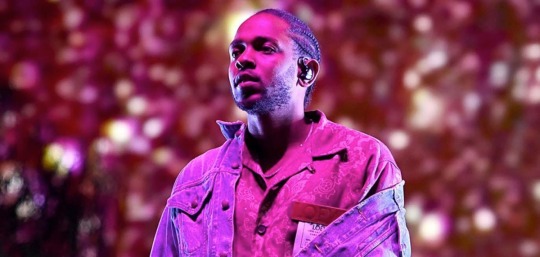
View On WordPress
3 notes
·
View notes
Text
Full Album Rar: Kendrick Lamar - Mr. Morale & The Big Steppers
Full Album Rar: Kendrick Lamar – Mr. Morale & The Big Steppers
Kendrick Lamar Mr. Morale & The Big Steppers Zip Download
Kendrick Lamar has released an Album titled “Mr. Morale & The Big Steppers” and it’s available here on mp3 iTunes FLAC rar zippyshare + 320kbps for your free download.
Stream and Download Kendrick Lamar – Mr. Morale & The Big Steppers album tracklist, music album downloader,mp3 album, Download Mp3,hipHop, Album download
Kendrick Lamar –…
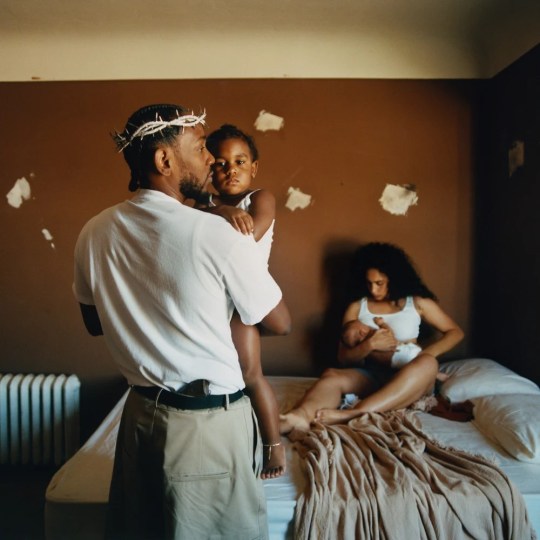
View On WordPress
0 notes